A Filmmaker's Guide to: 10 Courtroom Dramas
A List of Legal Thrillers

The courtroom drama has been a big piece of interesting cinema for so long purely because it has the ability to show us the loopholes and problems with the judicial system in a way a crime documentary about innocence would. The only difference is that we don't get these side notes teaching us about the legal system, instead we get a very clever storyline told through numerous different voices. We are not swayed to believe either way until someone is completely exonerated and so, it is very much like watching a crime and courtroom play out the long legal process. The reason why we find this interesting is because we are not only fascinated by the dark and criminal side of human nature but, somewhere deep down, we are the only ones who actually know how this case is going to turn out. Musical scores, especially character themes and scene setters can give us hints and clues and, with the want for closure, we can normally guess the ending before it happens. The reason we watch it therefore, is to see what we don't see in real life: the madness of the courtroom.
In this article, we'll have a look at ten courtroom dramas you can watch to learn more about the filmmaking process when it comes to creating your perfect, but also inaccurate to real life, courtroom drama. I say inaccurate to real life because everyone knows that this is not the stuff that really happens in the courtroom and in some cases in which they are based on true stories, that is not actually what happened in that particular case either. It has to be one thing first of all: entertaining and thrilling. The second thing it has to do is tell the story. If you can do both of those then everything else is an add-on. It may sound crude to put entertainment value first but just watch what happens when you film an actual courtroom case and try making it into a film - the audience will fall asleep.
These films are in no particular order:
10 Courtroom Dramas
1. Anatomy of a Murder (1969)
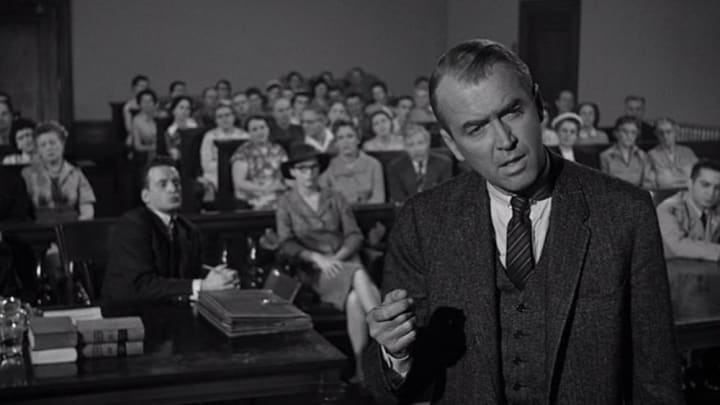
In this film, you want to pay attention to the way the story is told. Throughout the film we get things through the perspective and visions of the lawyer called Paul (portrayed by James Stewart). You want to find out what the purpose of this is and why we aren't told all the information straight away. If you watch to the end of the film, you'll be pleasantly surprised.
2. The Exorcism of Emily Rose (2005)
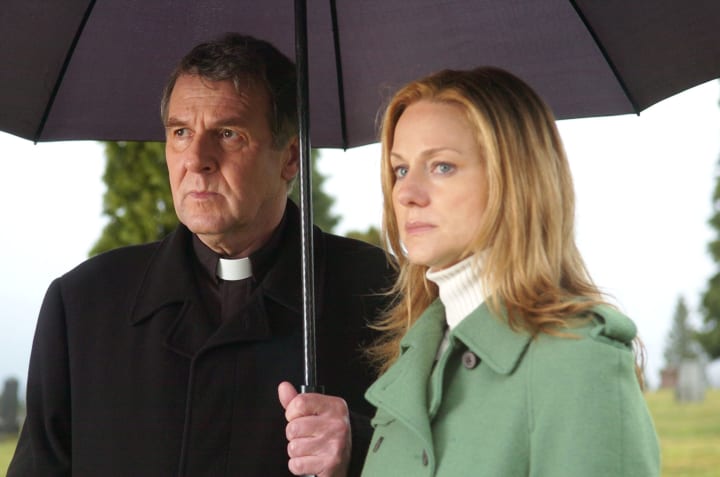
As I have previously said, courtroom dramas based on real cases are rarely like they are in real life and this one is no exception. Obviously, there are things left out because the story behind the case is so upsetting. But if you focus on the way the courtroom cuts back and forth in the timeline in order to show the audience what happened, you should have two narratives: one in the present of the courtroom and one in the past of Emily herself.
3. JFK (1991)
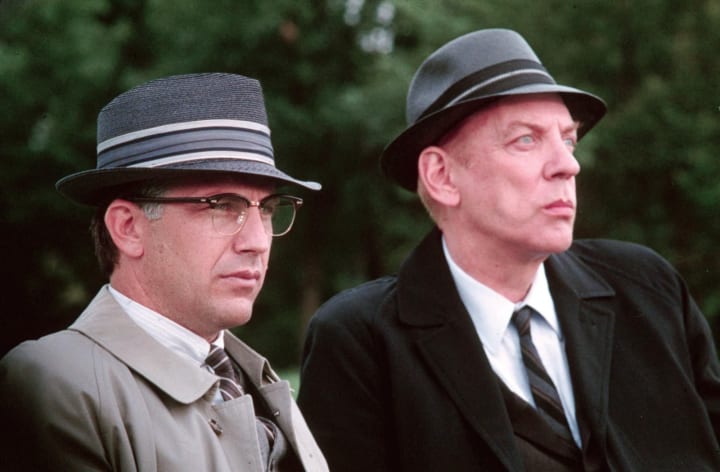
One of my personal favourite films, this story is told mostly in a linear narrative with a few flashbacks and dream sequences here and there. Pay close attention to the various montages within the film and why they play a big role in showing us what is going on rather than just telling us. The scene with "X" in which there is a montage about the war is especially important when it comes to the courtroom scene.
4. Primal Fear (1996)
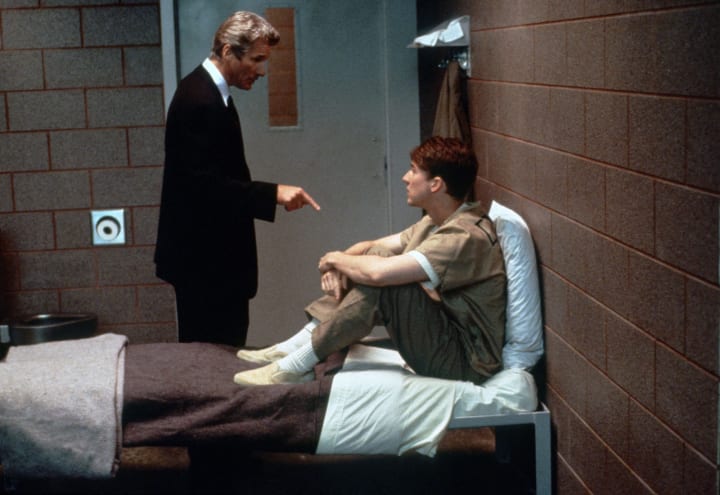
I would like to say that this film is different to most courtroom dramas I've seen but you probably want to pay good attention to the binary opposites in the characters played by Richard Gere and Edward Norton. Once you notice this, you'll also notice the friction and tension in the storyline and how this influences the end of the film. I don't really want to give it away, but that's the most I can say.
5. 12 Angry Men (1957)
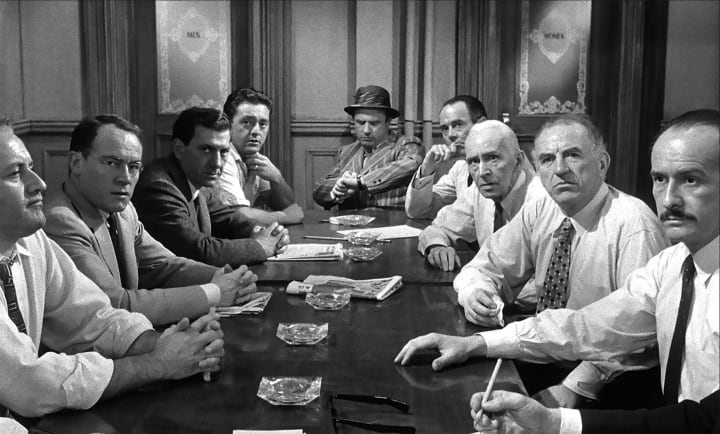
Most of this film is set in one room and seriously, it is one of the greatest courtroom dramas you'll ever see because you get a serious sense of claustrophobia whilst these 12 men are trying to decide whether one man should be executed for a crime they don't know whether he committed or not. As they go through the details, we don't really see the crime, but we see it through the story. That is very important.
6. The Devil's Advocate (1997)
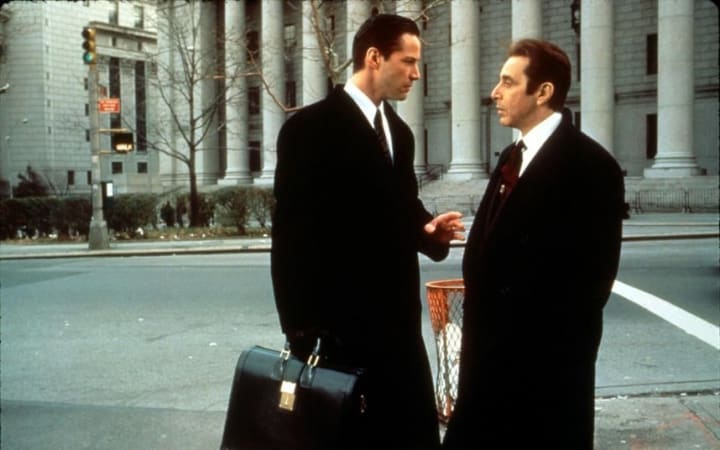
The character portrayed by Keanu Reeves is of prime importance in this film. You have to think about what the audience thinks of him at the beginning of the movie in comparison to what they think of him by the middle and then, at the end. As the courtroom drama comes into play, how does it impact the way we see the character and how does the law influence the thoughts we have and the observations we make?
7. In the Name of the Father (1993)
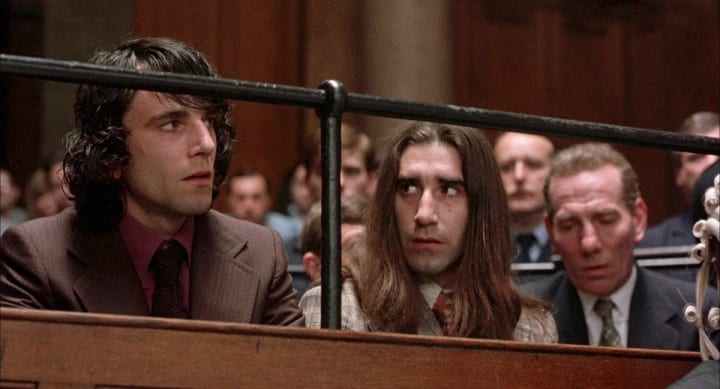
Another example of a true story film being absolutely nothing like the true story, but a great example of entertainment. High tension is the forte of this film as regularly set-backs are in motion, discrimination is part and parcel to the historical context of the movie and the sudden change in atmosphere from the outside world to the jail cells is all of great importance to understanding why this film became a modern classic of the courtroom drama.
8. The Rainmaker (1997)
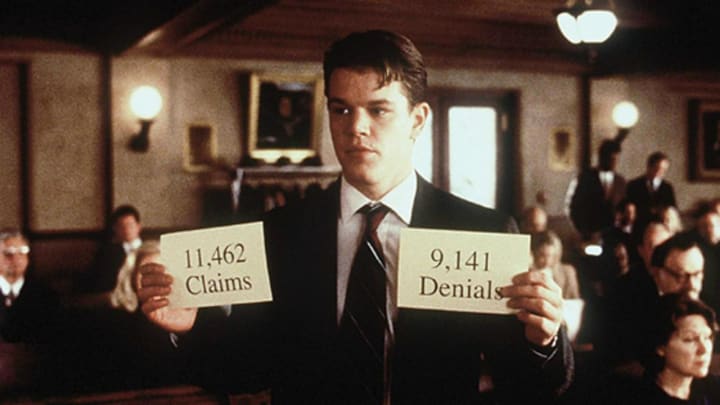
For this one, I would first suggest reading the book. John Grisham's works are mostly legal dramas and courtroom cases but this one is different as it also deals with a child. You want to focus on sympathy and empathy, ignorance and apathy. Which sides are they on? How are the audience made to feel empathetic towards certain characters and angry towards others and how does this influence our emotions about the ending to the film?
9. A Few Good Men (1992)
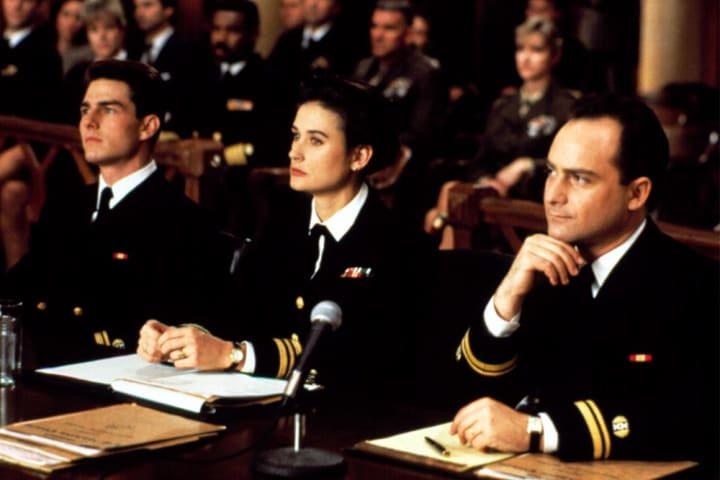
Possibly most famous for that scene where Tom Cruise and Jack Nicholson are shouting at each other, you want to concentrate on the masculine sense of ego, the details of truth and patriotism in this film. These three films should help you to decide upon the reasons behind things such as the soundtrack and the cinematography. It is a brilliantly simplistic piece of film that takes everything from its characters.
10. Michael Clayton (2007)
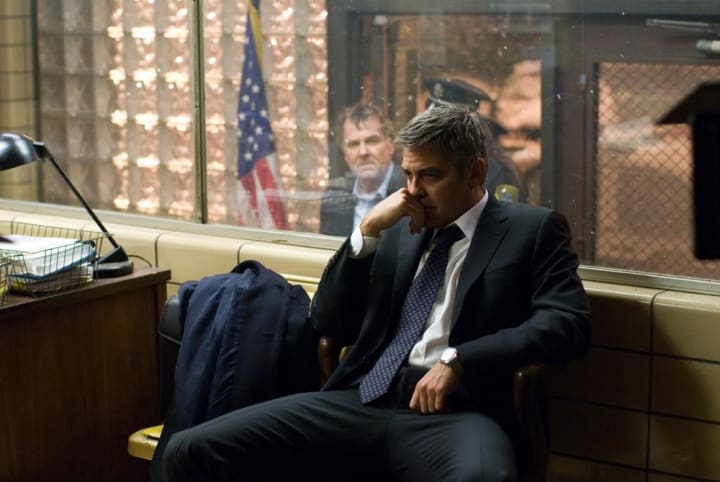
I have to admit, I'm not a big fan of this movie but I can appreciate what it does. Showing us the problems within the judicial system is often hard, but paying attention to the way in which character pushes the plot along and how the character of Michael Clayton evolves to try and make himself better over the course of the film goes hand-in-hand with understanding the chain of events.
About the Creator
Annie Kapur
195K+ Reads on Vocal.
English Lecturer
🎓Literature & Writing (B.A)
🎓Film & Writing (M.A)
🎓Secondary English Education (PgDipEd) (QTS)
📍Birmingham, UK


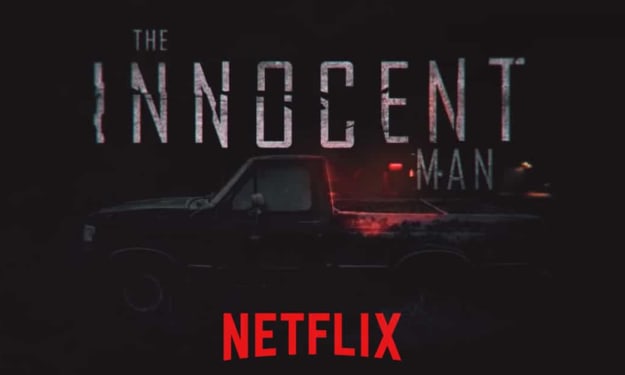



Comments
There are no comments for this story
Be the first to respond and start the conversation.